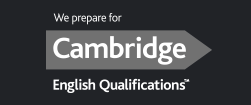News
-
Cambridge official exams results
Check how they went!
-
NOVA ESCOLA Cambridge School a MATARÓ
Incorporem Newlingua al nostre grup d'escoles
-
CASALS D'ESTIU 2025
Inscripcions obertes per a CAN SALA i HORTUS!
-
VIATGES I COLÒNIES EN ANGLÈS - ESTIU 2025
A Catalunya i a l’estranger!
Business English in the time of covid
Tuesday, 3 November 2020Has the way we learn English in the professional world changed?
In the past seven months, covid-19 has changed almost everything: the way we think, the way we socialise, the way we shop, the way we do business...
At Cambridge School, we are aware that these changes may have affected how companies work as much as they have affected our society, so we’ve adapted to the situation in the best way possible to keep offering an excellent service to our in-company customers.
English: still a key player.
In these times of international meetings, global projects and online shopping, we believe languages are still a very important asset for all types of businesses, from multinational companies to local shops who are hoping to expand.
Why?
Planes may not be flying as often as they did and tourists may not be coming in the same numbers as before, but English is being heard more than ever in thousands of international videoconferences that take place every day in companies around the world and is also read in the millions of messages sent non-stop from computers and smart-phones in the shape of WhatsApps, emails or sms; and once we open our countries’ doors again to tourism (whether this happens in one month or six) mastering a language is still going to be an important advantage and a key skill when exploring new markets.
How do our English classes work with covid-19?
You may wonder how all these changes have affected our language courses, and whether it has changed the way we teach too.
In addition to the traditional face-to-face classes (which we do in-school or in-company following the required preventive measures), Cambridge School is now providing a wide range of English courses by videoconference on a variety of platforms which our clients can choose from, such as Zoom, Teams or Skype.
To understand a little better about how these courses work, we’ve interviewed two of our experienced in-company teachers and here is what they have to say.
THE INTERVIEW
QUESTION 1 — Which online platform do you use?
Anna Owsiany – With my in-company students, I use Zoom.
Adam Beale – In my case, I use Microsoft Teams.
QUESTION 2 — What are the advantages of learning English via videoconference?
Anna Owsiany (Zoom) – There are quite a few actually! One of the most important ones, especially for in-company students, is that they can join our sessions wherever they are. They just need a laptop with Internet connection and they’re good to go! Another important advantage is that lessons reflect real life. All of my students use one online platform or another to communicate with their clients around the world. This means that they get to practise doing just that with me. There’s an even heavier focus on listening skills, pronunciation and communication strategies, all of which are essential during online meetings.
Adam Beale (Teams) – For me, the main advantage is the continuation of learning. Despite the current situation, learners can now learn from anywhere without having to miss out due to working from home. In fact, students may be more comfortable learning in their home environment, facilitating greater uptake.
QUESTION 3 — Are there any changes in the English activities you do online (compared to face-to-face classes)?
Anna Owsiany (Zoom) – Thanks to the multiple tools available online and on our computers, it’s much easier for me to react to what is happening at any given moment during each class. For example, I can instantly share documents, links, and even my screen with clients, and they can use the Annotate tool on Zoom to interact with the texts we’re reading and sentences we’re writing. I can have all of the students writing on the whiteboard at the same time! Breakout rooms on Zoom are also a great tool when doing speaking practice and working in groups as students in different rooms can’t hear each other, which is great when preparing for competitive activities.
Adam Beale (Teams) – Using Teams, I still try to do the same activities that I would do in a face-to-face class. We can use breakout rooms for pair work; however, I tend to do most speaking work as an open discussion amongst the group and this way they can practise turn-taking and interrupting. Writing can be more collaborative in an online class as we can all write and add to the same document synchronously (using Google docs) and this allows me to also provide real-time feedback. This is an activity which would be impossible or very slow in a face-to-face class.
QUESTION 4 — How have your students adapted to Teams/Zoom?
Anna Owsiany (Zoom) – All of my students successfully learnt how to join our sessions and use the different tools available on Zoom in no time. I consider it part of my job to introduce clients to all the technology we use during our lessons. In the first one or two classes, there are always a few hiccups. Students sometimes discover they need to find a spot with a stronger Wifi signal, or that they don’t know how to make their headset work, how to unmute themselves on Zoom, etc. Learning all this is just part of the process of learning online and most people get the hang of it really quickly.
Adam Beale (Teams) – In my experience, the adaptation by the students to the various platforms has been excellent. Many are using the same platforms for meetings and projects so they are familiar with the tools we use.
QUESTION 5 — What type of companies do you teach online to?
Anna Owsiany (Zoom) – This term, for me, it’s mainly local companies with clients and suppliers all over the world.
Adam Beale (Teams) – In my case, I teach at a large biotechnology company as well as a plastic packaging company.
QUESTION 6 — Is the students’ attitude different via videoconference?
Anna Owsiany (Zoom) – Surprisingly, they seem to be more focused and active. I believe it has something to do with the fact that they connect from their offices or rooms, where they are on their own. And me looking into the camera most of the time must seem like I’m speaking directly to each and every one of them. But maybe they’d have a different opinion about all this!
Adam Beale (Teams) – Personally, I have not noticed a change in the attitude. The students continue to be very positive in their approach to their studies.
QUESTION 7 — Do you follow the same syllabus and do the same exams?
Anna Owsiany (Zoom) – We have clear objectives and work on all the skills as well as grammar and vocabulary, as required by each company, so the syllabus is the same as it’d be if we were doing face-to-face classes. With the groups I’m teaching right now we don’t do tests or exams.
Adam Beale (Teams) – With our students, we follow a syllabus as normal. This provides us with a general structure for the course, and we also continue to offer periodic tests and exams to assess our learners.
QUESTION 8 — What type of online courses do you teach?
Anna Owsiany (Zoom) – I teach one-to-one and group courses, which are all business focused.
Adam Beale (Teams) – While I do teach at companies, our main focus is on improving the learners level of English and therefore we focus primarily on general English materials but I ensure we relate the language we encounter to the learners’ work environment and experiences.
QUESTION 9 — Where do your students do their classes from?
Anna Owsiany (Zoom) – Regarding my students, they mostly connect from offices and conference rooms.
Adam Beale (Teams)– Most of my students do the classes from home; however, at some companies we have hybrid classes where students can attend the class face to face while others join us online. With the adoption of flexible working hours and a greater demand for teleworking, students can be in class one lesson and online the next.
////////
In 2020, the government has allowed companies to receive a tax rebate for courses done on Zoom and Teams. In 2021, given that the current situation with COVID persists, the tax rebate seems likely to continue into the new year. Find out more!
If you want more information about this or about our online in-company courses, please visit the in-company section on our website HERE or request a personalised quote or an appointment with our in-company team.










 Tel. 93 655 05 58
Tel. 93 655 05 58 Enviar WhatsApp
Enviar WhatsApp



![[...]](https://www.cambridgeschool.com/xtra/imgs/loading.gif)